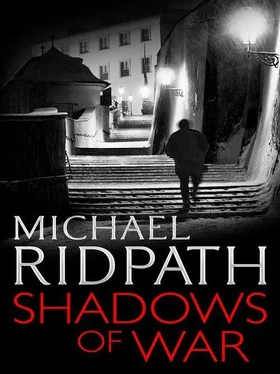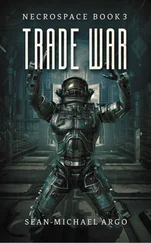‘I need to get back to London to do what I can to stop Alston,’ Conrad said. ‘But we also need to prevent the duke from returning to Britain. Now my father is…’ He hesitated. ‘…is gone, Alston might send someone else. Or he might persuade the duke over the telephone.’
‘I’ll go to Biarritz,’ said Veronica.
‘But how can you stop him?’
‘I’ll think of a way.’ Veronica smiled. ‘I can always think of a way.’
Conrad examined the map and, after judging that the chance of him getting a seat on an aeroplane in the current chaos were nil, decided that a boat from Bordeaux was his best bet. So when they hit the main road, they turned left.
Pall Mall, London
It was a pleasant stroll across St James’s Park to Alston’s club. Britain, or at least the British ruling classes, were panicking, and Alston was relishing it. The news from France was bad; no one believed anything would come of the British and French counter-attacks which were supposed to nip off the neck of the advancing German panzer divisions. According to the Newspaper Proprietor, it would be only a matter of days before the panic seeped down to the general populace. There were rumours that the General was about to get the sack: dismaying for him, no doubt, but it would leave him angry and free to help the cause. Alston had heard from Constance two days before in Paris that she had caught up with Arthur Oakford, but that the duke had left for Biarritz. They would follow him there in a borrowed car. No sign of de Lancey yet. Alston needed to arrange for an aeroplane to fetch the duke from Biarritz back to England.
The timing should be just about perfect. In a few days the pressure on Churchill would become intolerable, and the duke’s sudden appearance in Britain demanding peace would break him. Alston and his colleagues would be ready.
But Oswald Mosley would not. He and Maule Ramsay had been arrested the day before under the new Regulation 18B, leaving Alston and his friends a clear shot at power.
Alston greeted the porter at the lodge. His guest was waiting for him in the library, and there was also a message for him. The message was from Lindfors. Both your requests have been accepted. Good luck.
Alston smiled. That meant Hitler had agreed to give the BEF some breathing space to allow peace negotiations, and that he would refuse to do business with a government including Churchill.
He climbed the stairs to the club library, where the Civil Servant was waiting for him with the latest information on the War Cabinet meetings.
Not long now.
Extract from Lieutenant Dieter von Hertenberg’s Diary
25 May
Boulogne captured. 10 thPanzer fighting in Calais. Asked British to surrender, but they refused: ‘The answer is no, as it is the British Army’s duty to fight, just as it is the German’s.’ Fair enough. Perhaps I am getting overconfident, but I don’t give them more than a couple of days.
Still forbidden to advance on Dunkirk.
Biarritz, 25 May
Theo identified a choice of two cafés opposite the Hôtel du Palais, Biarritz’s grandest hotel, where the British royal family always stayed on their visits to the resort. He had had little difficulty with the French officials at Hendaye on the Spanish frontier — there were very few travellers entering the country, and a mass of unruly people of all nationalities trying to leave it. They hadn’t searched his luggage, so the pistol he had stowed in the false bottom of his suitcase had remained undetected. Biarritz was only twenty kilometres north of the frontier. It was much easier to get a seat on a train heading north than south.
Once in Biarritz, Theo had solved the problem of whether the duke had arrived by asking English tourists leaving the hotel. He had, in fact, joined his wife the night before. What English tourists were doing in Biarritz in the middle of a war, Theo had no idea, but they were there in some numbers, and willing to chat to a friendly young Yugoslav.
So Theo was too late to divert Otto Langebrück with his story that the duke and duchess were actually on their way to Antibes. But it was possible that Otto had not yet had a chance to speak to the duke himself. Theo’s plan was to find a seat at a café and watch out for him.
And there he was! Sitting at a table outside one of the two cafés himself, checking the entrance to the hotel. Theo strolled past. Otto spotted him, smiled and stood up. The amateur! Theo caught his eye for a second and then looked away. It was unlikely that he or Otto were under surveillance, but not impossible, and Theo wasn’t about to abandon his most basic tradecraft, even though it was clear Otto had never been taught it.
But Otto was quick enough to realize what Theo was doing — out of his peripheral vision Theo could see him looking down at his coffee. Theo walked slowly past and strolled along the beachfront road. The hotel was a grand building of red and white plonked on a little headland between the town’s two beaches. Theo walked the length of the southernmost beach towards the cliffs at the end. He found a path down to the sand, checking behind him to make sure that Otto was following. He was, at a discreet distance, but not really discreet enough if he were under professional surveillance. Oh, well. There was nothing Theo could do about that.
It was still too early in the year to swim, but there were a number of holidaymakers strolling along the beach, although none at the far end by the cliffs. The tide was almost in, and Theo felt out of place dodging the waves in his businessman’s suit and shoes. He reached the point where the cliffs jutted out towards the sea, and clambered on to the rocks. He was looking for a cave or a small crevice in the cliff face that would put him out of sight of the people on the beach, and he found one. It stretched only a few metres in, but that was enough. He climbed in, sat on a rock and waited. The Atlantic waves lapped the shore just a few metres in front of him. In an hour or so, the sea would be in the cave.
A minute later, Otto joined him. He grinned and shook Theo’s hand. ‘I’m sorry I showed I recognized you back there,’ he said. ‘That was foolish.’
‘Never mind,’ said Theo.
‘What are you doing here? Is something wrong?’
‘Have you had a chance to speak to the duke yet?’
‘Not yet. I was just writing a note for him asking him to meet me.’ Otto pulled a sheet of paper out of his jacket pocket.
Theo examined the young diplomat. He had found out quite a bit about him in the few days they had spent together. Like Theo, he had trained as a lawyer. He had spent some time in France and a little in England. Although he wasn’t from one of the close-knit Junkers landed families like Theo’s, Theo could imagine being a friend of his at university. Otto wasn’t Gestapo, and although he may well be a member of the Nazi Party, he didn’t strike Theo as a fanatical supporter at all. During the plans for the coup in 1938, Theo had had to approach a number of men in important positions to sound out support. He had been surprised how even long-term Party members had listened to him favourably.
Otto was worth a try.
‘I don’t think you should approach the duke,’ Theo said.
‘Why not?’ said Otto. ‘Surely if he became king again and presided over peace talks with Germany, it would be good for us.’
‘It would be good for Hitler,’ Theo said.
‘Of course it would,’ Otto agreed. Then he frowned. ‘Are you suggesting what I think you are suggesting?’
‘What’s good for Hitler is not necessarily good for Germany,’ Theo said. ‘Or Europe.’
‘But we would win the war, Theo! That’s certainly good for Germany.’
Читать дальше












